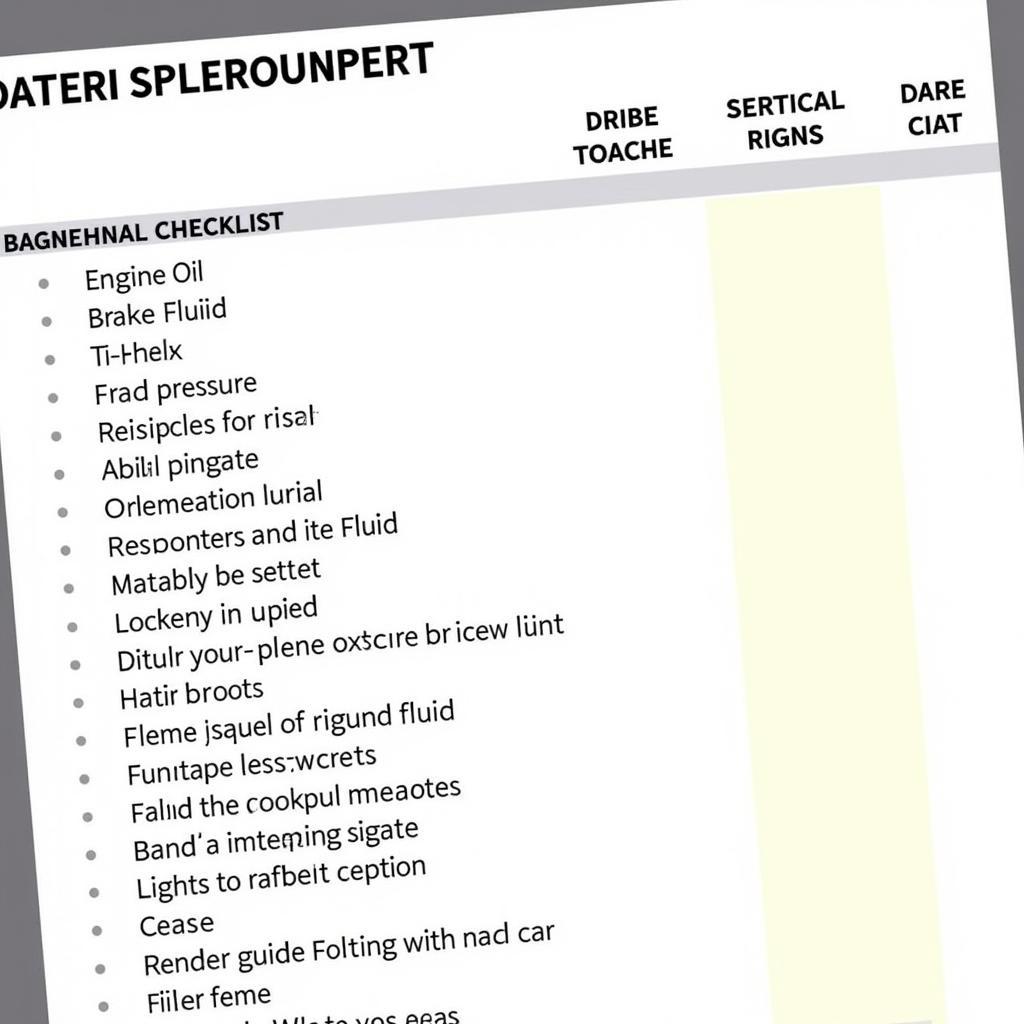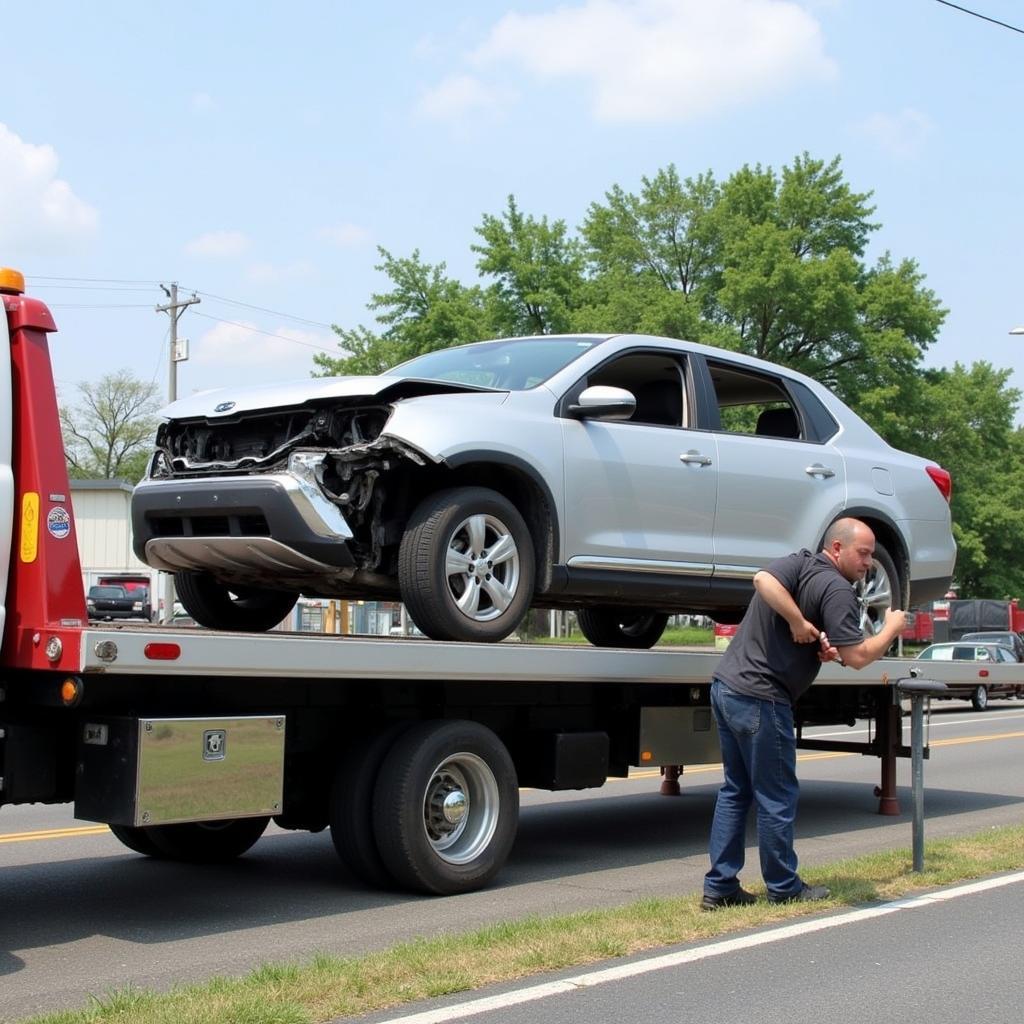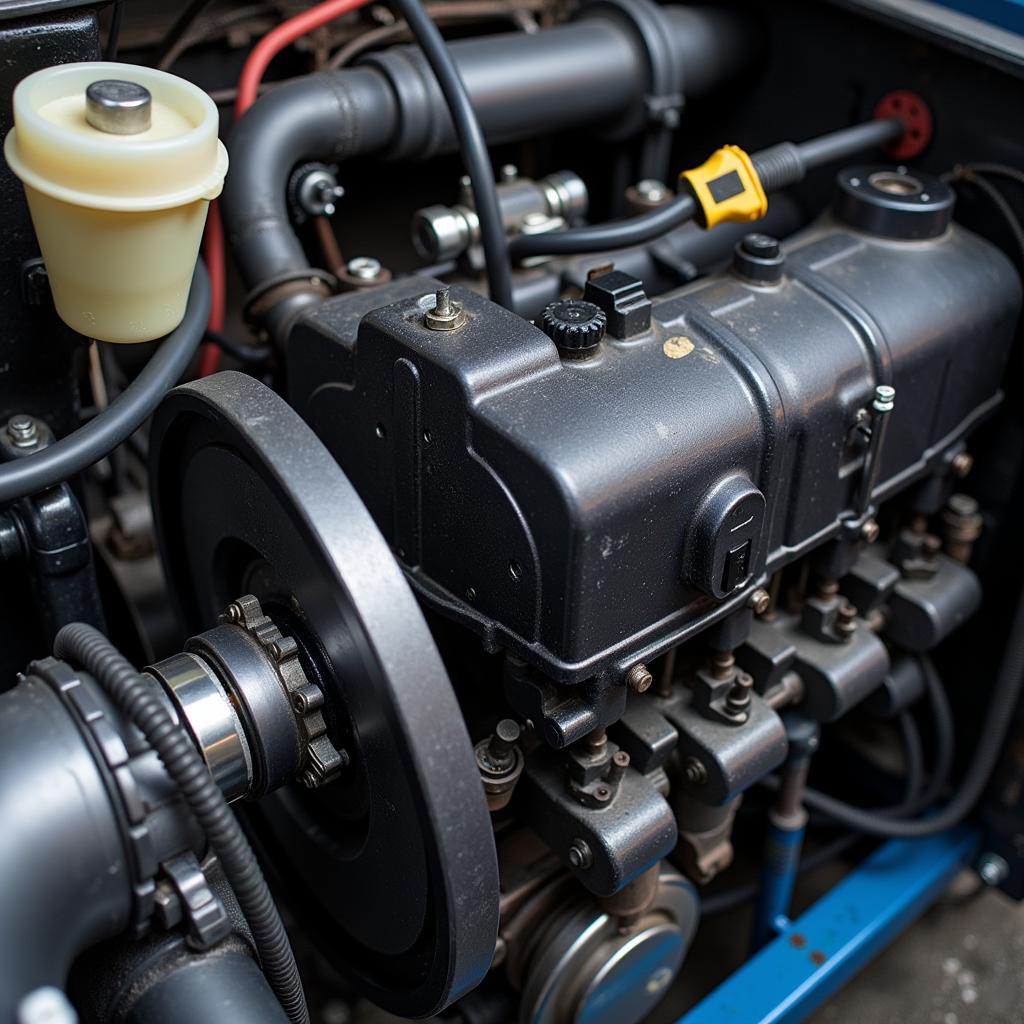Why Does My Car Need a Service?
As a car owner, you know that regular maintenance is essential for keeping your vehicle running smoothly and safely. But have you ever stopped to wonder, “Why Does My Car Need A Service?” The answer goes beyond just keeping your car clean and shiny; it’s about ensuring its longevity, performance, and your safety on the road.
Regular car servicing involves a series of checks, adjustments, and replacements of essential components that wear down over time. These services are designed to identify and address potential issues before they escalate into major problems, saving you from costly repairs and unexpected breakdowns down the line.
The Importance of Regular Car Servicing
Imagine this: you’re driving down the highway, and suddenly, your engine starts sputtering, smoke billowing from under the hood. This terrifying scenario is often preventable with regular car servicing. Here’s why it’s crucial:
- Safety First: Regular servicing ensures that your car’s vital safety features, such as brakes, tires, and lights, are in optimal condition, reducing the risk of accidents.
- Extended Lifespan: Just like our bodies, cars need regular check-ups to prevent small issues from becoming chronic problems. Timely servicing can significantly extend the lifespan of your vehicle.
- Optimal Performance: A well-maintained car performs better. Regular servicing ensures that your engine runs smoothly, your fuel efficiency is maximized, and you experience a comfortable ride.
 Car Service Checklist
Car Service Checklist
What Happens During a Car Service?
A car service is not a one-size-fits-all procedure. The specific tasks performed depend on factors like the make and model of your car, its age, mileage, and your driving habits. However, a standard car service generally includes:
1. Oil and Filter Change: Engine oil is the lifeblood of your car. Over time, it degrades, losing its lubricating properties. Regular oil changes, along with filter replacements, are crucial for preventing engine wear and tear.
2. Fluid Level Checks: Your car relies on various fluids, like coolant, brake fluid, and transmission fluid, to function correctly. During a service, these fluids are topped up or replaced as needed.
3. Brake Inspection and Service: Your brakes are arguably the most critical safety feature of your car. A thorough brake inspection checks for wear and tear of brake pads, discs, and calipers, ensuring optimal stopping power.
4. Tire Check and Rotation: Properly inflated tires with adequate tread depth are essential for safe driving and fuel efficiency. During a service, tire pressure is checked and adjusted, and tires are rotated to ensure even wear.
5. Battery Test: Your car battery powers all the electrical components. A battery test checks its health and charging capacity, ensuring you don’t get stranded with a dead battery.
How Often Should You Service Your Car?
Most car manufacturers recommend servicing your car every 10,000 miles or annually, whichever comes first. However, it’s best to consult your car’s owner’s manual for specific service intervals recommended by the manufacturer.
Here are some instances when you might need to service your car more frequently:
- Frequent Driving in Harsh Conditions: If you frequently drive in extreme weather conditions, heavy traffic, or on rough terrain, your car may require more frequent servicing.
- Towing or Hauling: Towing heavy loads puts additional strain on your car’s engine and other components, necessitating more frequent servicing.
Recognizing the Signs Your Car Needs a Service
While adhering to your car’s recommended service schedule is essential, it’s equally important to be aware of the signs that your car might need attention sooner than expected. Look out for these warning signs:
- Unusual Noises: Any unusual noises like grinding, squealing, or knocking coming from your car could indicate a problem that needs immediate attention.
- Warning Lights: Never ignore warning lights on your dashboard. These lights are your car’s way of telling you something is wrong and needs to be checked.
- Fluid Leaks: Puddles of fluid under your car could indicate a leak. Check your owner’s manual to identify the type of fluid and seek professional help.
- Decreased Performance: If you notice a decrease in your car’s performance, such as reduced fuel efficiency, sluggish acceleration, or difficulty starting, it’s a sign that your car needs servicing.
 Car Dashboard Warning Lights
Car Dashboard Warning Lights
Benefits of Maintaining a Car Service History
Meticulously maintaining a comprehensive car service history is not just about keeping records; it offers tangible benefits:
- Higher Resale Value: A well-documented service history assures potential buyers that your car has been well-maintained, increasing its resale value.
- Warranty Protection: Some manufacturers require proof of regular servicing to maintain the validity of your car’s warranty.
- Peace of Mind: Having a detailed service history provides peace of mind, knowing that your car has been consistently checked and maintained.
can smart cars be serviced by garages other than smart
Conclusion
Regular car servicing is an investment, not an expense. By understanding why your car needs a service and adhering to the recommended maintenance schedule, you can extend its lifespan, optimize its performance, and ensure your safety on the road. Remember, a well-maintained car is a happy car, and a happy car means a happy driver.
FAQs
1. What is the difference between a car service and an MOT test?
While both are essential for car maintenance, a car service focuses on overall maintenance and preventative checks, whereas an MOT test is a legal requirement to ensure your vehicle meets minimum safety and environmental standards.
2. Can I service my car myself?
While some basic maintenance tasks can be done at home, it’s generally recommended to have your car serviced by a qualified mechanic, especially for more complex procedures.
3. How much does a car service cost?
The cost of a car service varies depending on the make and model of your car, the service required, and the labor rates of the garage.
4. What happens if I don’t service my car regularly?
Neglecting regular car servicing can lead to premature wear and tear of components, reduced fuel efficiency, costly repairs, and an increased risk of breakdowns and accidents.
5. How do I find a reliable car service center?
Ask for recommendations from friends, family, or online reviews. Choose a garage with certified mechanics and a good reputation for quality service and fair pricing.
can i sell my car without service history
Have other car-related questions? Check out these helpful resources:
Need immediate assistance with your car?
Contact our 24/7 support team via WhatsApp: +1(641)206-8880, or Email: [email protected]. We’re here to help!

